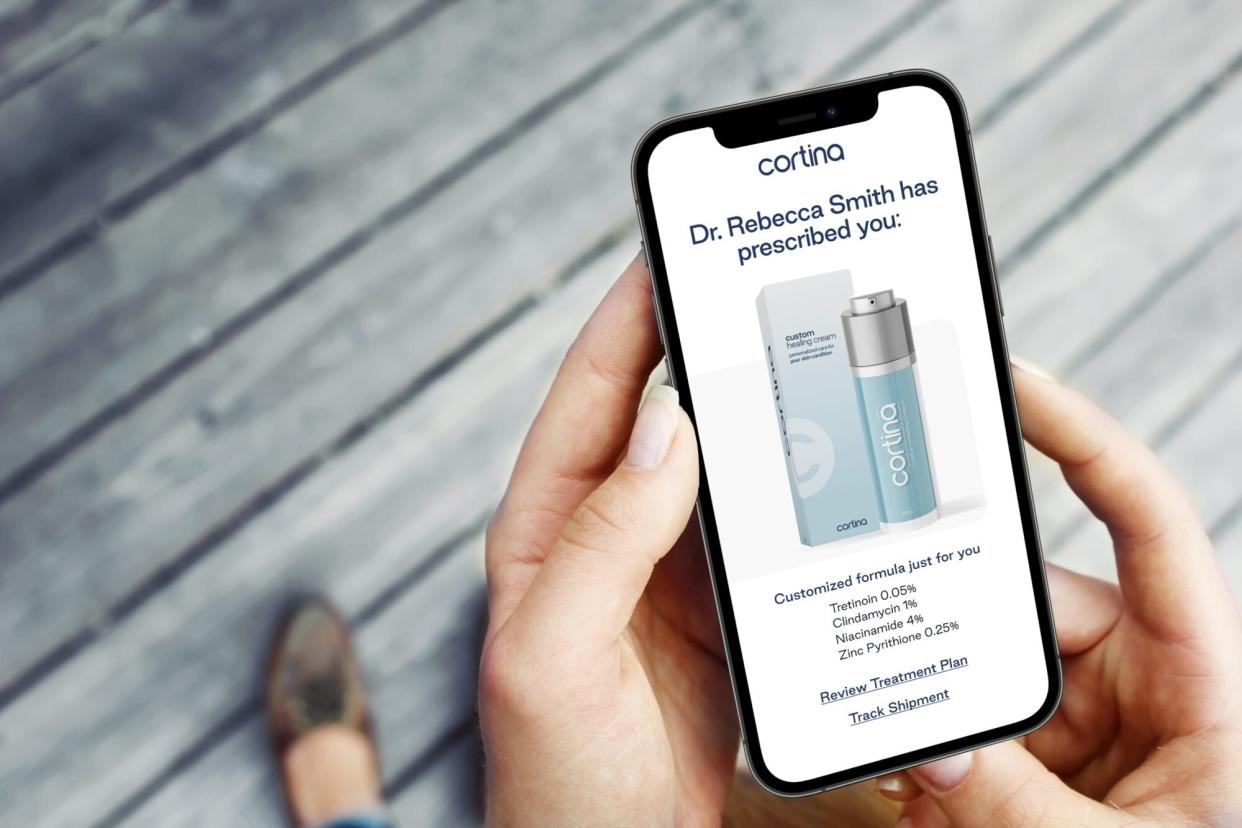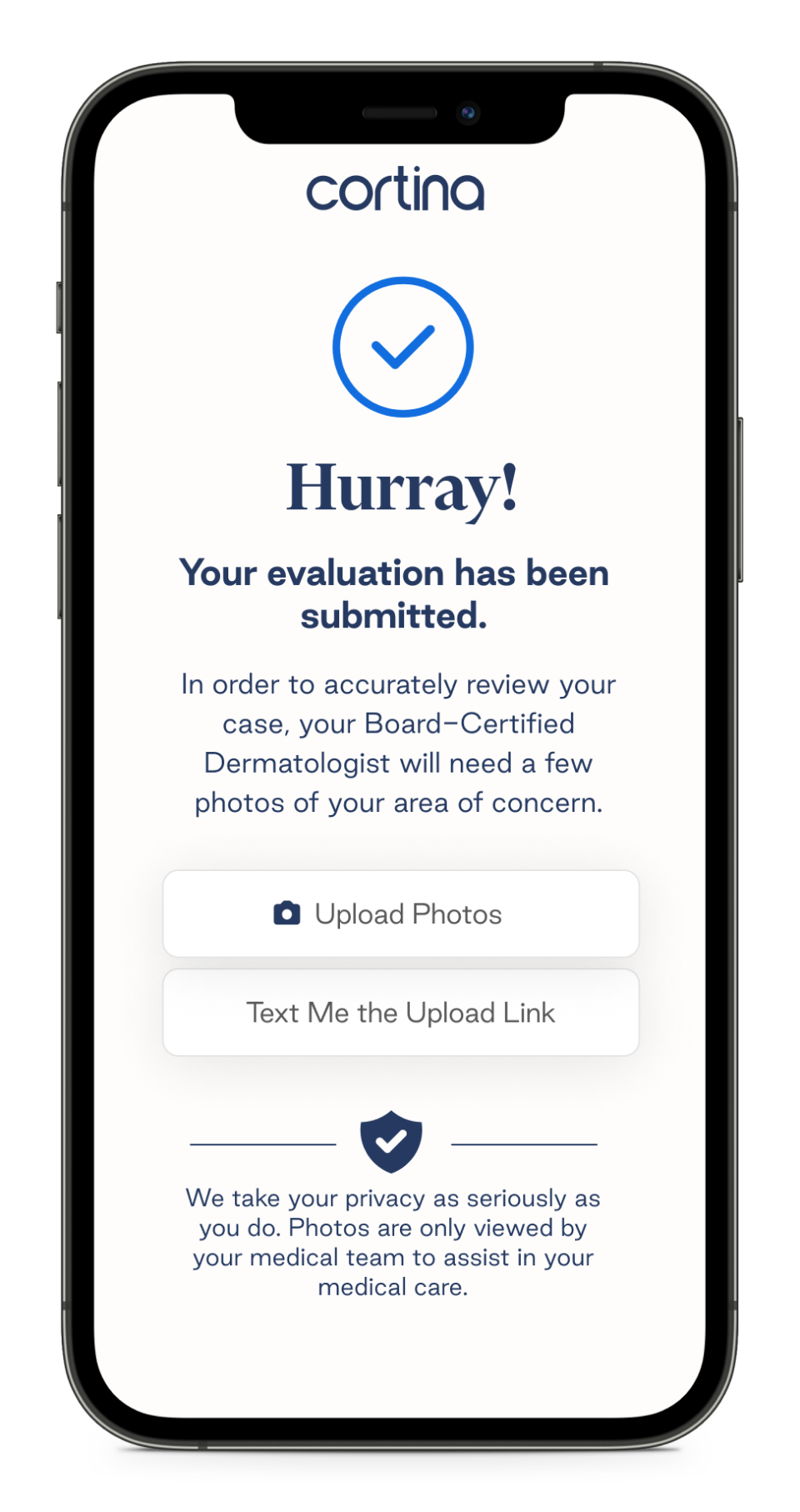Exclusive: How Cortina Health Wants to be the Future of Democratized Teledermatology

Courtesy of Cortina
If you've ever dealt with skin conditions that require a dermatologist, you know that getting the help you need can be complicated. As experts in their field, many dermatologists are extremely in demand, which can make landing an appointment feel like an impossible task.
Thankfully, there is a technology-driven solution that promises to make dermatology more accessible to the masses and allow doctors to see more patients. What is it? Teledermatology.
As a professor of Plastic Surgery at Harvard, the founder and CEO of Cortina Health Dr. Reid Maclellan recognized the need to "democratize elite dermatology," and worked to create a company that could do just that by harnessing the power of artificial intelligence and skilled dermatologists.
People Chica spoke with Dr. Maclellan to find out how Cortina Health is making strides within the skin care industry.

Courtesy of Cortina
How did you get your start in telehealth?
During her entire life, my wife has suffered from severe acne. She'd gone on Accutane three separate times and every time she got off, her acne came back. If you have acne, you really need to find an appropriate maintenance therapy. Unfortunately, it was difficult for her to get in to see a dermatologist and to follow up with them to switch treatments.
But while we were honeymooning in the Southern Alps in Cortina, Italy, my wife claimed that her skin had never been clearer. We come back home and unfortunately, her skin breaks out and she hadn't changed anything. Her exact words were, "I really wish that we could figure out a way for me to have the same skin I had in Cortina forever."
At that moment, being a plastic surgeon, I realized that there was something we could do, and I knew that we could have a better follow-up and continuity of care by leveraging virtual health.
How does Cortina work?
We recruited dermatologists in all 50 states [and] built an electronic health record system and telehealth platform. After [patients] submit their case, a doctor reviews it in less than 24 hours and returns back to the patient with a diagnosis.
Then, there's a personalized treatment made just for you, we submit that prescription to our compounding pharmacy, and we're going to ship it to your door within three days.
But that's just the start. We actually reach out—we're proactive, and we reach out to [patients], have them take some additional photos to see how they're doing with the treatment. You can also reach out to your doctor as much as you want. We want to be able to educate the patient and let them know that we're walking beside them during their entire skin care journey.

Courtesy of Cortina
Beyond acne, what other conditions can Cortina treat?
Right now, we're treating the four most common skin diseases. Acne is a very big number [of cases]. 50 million Americans every year have acne. Also, hair loss [as] dermatologists study the hair follicles as part of the skin.
[We also treat] rosacea, or reddening of the face. We see a lot of patients that think they have acne, but they actually have rosacea instead. Finally, melasma, hyperpigmentation or dark spots.
What's next for Cortina and teledermatology?
Our goal is hopefully, by the end of the year, to be able to have a sixth option: a one-time visit. You may have been on a hike, and you have a rash. Is it a heat rash? Is that poison ivy? Or you're just wondering, "what exactly is this?"
That's when we will truly be full teledermatology, providing everything with our own pharmacy to assist the patient.
Our goal at Cortina is to democratize elite dermatology. We want to be able to provide it to everyone, and to do that, [it] takes a huge infrastructure to be able to practice medicine each day [and] to be able to practice pharmaceutical medicine each day, which is exactly what we do.

